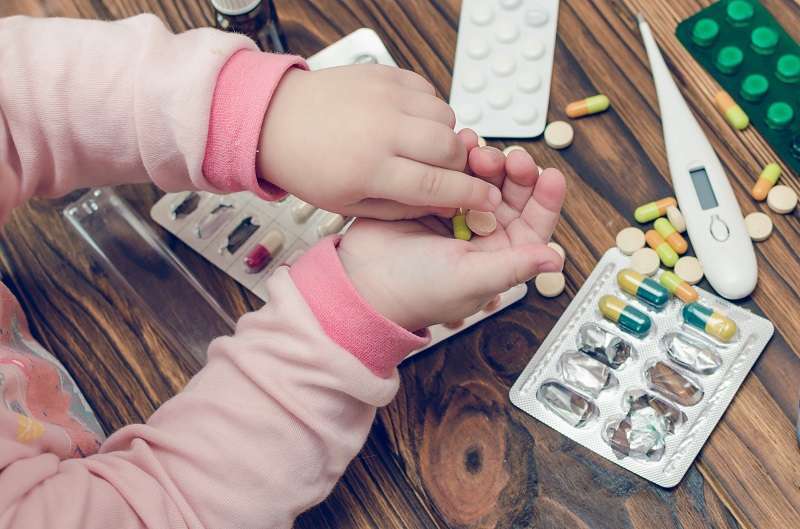A recent survey among parents in the United States revealed that almost half of them kept leftover prescription medication at home, and that many of them keep over-the-counter (OTC) medication around past its expiration date. The survey also reported that three in five parents were more careful about disposing of leftover prescription medication than expired OTC medication.
However, both leftover and expired medication, can pose a danger to curious children. So the next time you set about making your home safe for kids, it would help if you went through your medicine cabinet and removed all leftover and expired medications.
Younger children taking medicine on their own in the home is a major source of unintentional poisonings. For older children, access to these medicines brings risk of experimentation, diversion to peers, or other intentional misuse.
Children are curious and exploratory by nature. Leftover medications can look like candy and young children often explore by putting objects in their mouths. Doctors warn that even leftover medications that have lost potency can still be deadly when consumed by young children. For instance, some medications, including certain heart and diabetes medications, can cause life-threatening symptoms in children after consuming just a single pill. A simple solution for limiting children’s access to medication is to keep it safely locked away.
However, the effectiveness of a drug past its expiration date is also an issue. For instance, more than half of parents surveyed believed that OTC medication is still effective past its expiration date, any time between one month to a year after its expiration. Experts say that could be true, but there is no guarantee. Only less than four in 10 parents said it was never safe to give their children expired medicine.
Medications contain an expiration date, and for a good reason. While many drugs, both prescription and non-prescription, may be effective after the listed expiration date, medications are not tested to determine whether they actually are effective after their expiration date. While most medications can deteriorate in quality over time, some may be susceptible to bacterial contamination, or become less effective if not stored properly, or if kept for too long after their expiration date.”
Aside from the risk of accidental ingestion, keeping expired medication around can also mean that parents are forced to make a difficult choice when their child is sick..
In an emergency, parents may have to decide if they will give the child an expired medicine that is available, or go out to purchase new medicine which could take a while.
In many cases, the cost is also a factor that entices parents to keep expired medication around. Some people may keep expired medications to save on out-of-pocket prescription costs or doctor visits. Moreover, many newer or non-generic prescription drugs are often quite expensive and people may keep older or expired versions of these drugs to avoid spending additional money on refills. There is also the difficulty associated with obtaining prescription drugs that compel many to hold on to older prescribed ones.
And then there is the problem of disposing of various medications in a safe and proper manner, even if someone decides to discard their leftover or expired medications. For instance, very few people, less than a quarter of parents surveyed, were aware that certain prescription drugs should be mixed with kitty litter or coffee grounds before being put in the trash. Also, many people did not know that certain drugs should be flushed down the toilet and not left in the trash to prevent accidental misuse.
Doctors and pharmacists admit that there is often no clear guidance, or specific process for discarding medications printed on drug packaging. Additionally, only a few pharmacies have the provisions to take back expired prescription medications and dispose of them safely.
Inappropriate disposal of expired or leftover medication can cause environmental contamination and subject others to accidental exposure. To avoid these repercussions, one alternative would be to make it easier for people to dispose of expired prescriptions by handing them back to the local pharmacies that fulfilled their order. Medical or municipal authorities should then arrange to collect these medications from pharmacies and arrange for their disposal in a safe manner.

